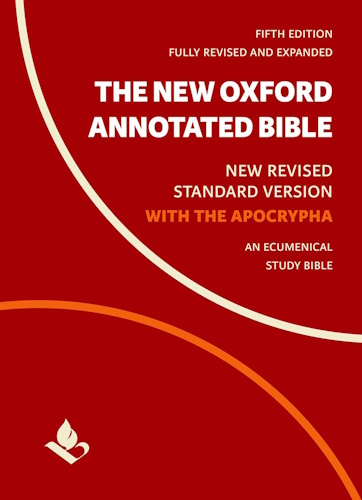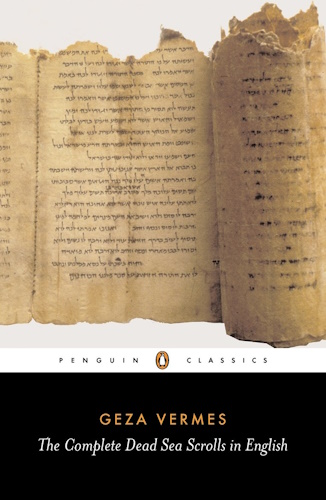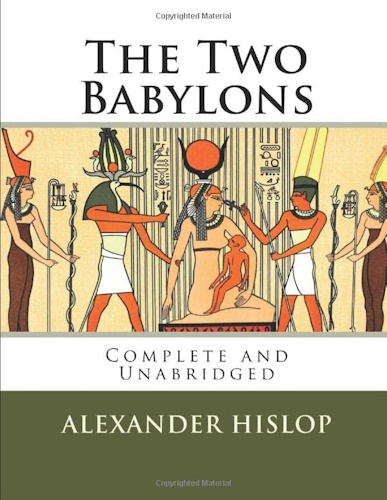
![]()
![]()
Chapter IV
Section IV
Extreme Unction
The last office which Popery performs for living men is to give them "extreme unction," to anoint them in the name of the Lord, after they have been shriven and absolved, and thus to prepare them for their last and unseen journey. The pretence for this "unction" of dying men is professedly taken from a command of James in regard to the visitation of the sick; but when the passage in question is fairly quoted it will be seen that such a practice could never have arisen from the apostolic direction--that it must have come from an entirely different source.
"Is any sick among you?" says James (v 14,15), "let him call for the elders of the church; and let them pray over him, anointing him with oil in the name of the Lord: and the prayer of faith shall save the sick, and the Lord shall RAISE HIM UP."
Now, it is evident that this prayer and anointing were intended for the recovery of the sick. Apostolic men, for the laying of the foundations of the Christian Church, were, by their great King and Head, invested with miraculous powers--powers which were intended only for a time, and were destined, as the apostles themselves declared, while exercising them, to "vanish away" (1 Cor 13:8). These powers were every day exercised by the "elders of the Church," when James wrote his epistle, and that for healing the bodies of men, even as our Lord Himself did. The "extreme unction" of Rome, as the very expression itself declares, is not intended for any such purpose. It is not intended for healing the sick, or "raising them up"; for it is not on any account to be administered till all hope of recovery is gone, and death is visibly at the very doors. As the object of this anointing is the very opposite of the Scriptural anointing, it must have come from a quite different quarter. That quarter is the very same from which the Papacy has imported so much heathenism, as we have seen already, into its own foul bosom. From the Chaldean Mysteries, extreme unction has obviously come. Among the many names of the Babylonian god was the name "Beel-samen," "Lord of Heaven," which is the name of the sun, but also of course of the sun-god. But Beel-samen also properly signifies "Lord of Oil," and was evidently intended as a synonym of the Divine name, "The Messiah." In Herodotus we find a statement made which this name alone can fully explain. There an individual is represented as having dreamt that the sun had anointed her father. That the sun should anoint any one is certainly not an idea that could naturally have presented itself; but when the name "Beel-samen," "Lord of Heaven," is seen also to signify "Lord of Oil," it is easy to see how that idea would be suggested. This also accounts for the fact that the body of the Babylonian Belus was represented as having been preserved in his sepulchre in Babylon till the time of Xerxes, floating in oil (CLERICUS, Philosoph. Orient.). And for the same reason, no doubt, it was that at Rome the "statue of Saturn" was "made hollow, andfilled with oil" (SMITH'S Classical Dictionary).
The olive branch, which we have already seen to have been one of the symbols of the Chaldean god, had evidently the same hieroglyphical meaning; for, as the olive was the oil-tree, so an olive branch emblematically signified a "son of oil," or an "anointed one" (Zech 4:12-14). Hence the reason that the Greeks, in coming before their gods in the attitude of suppliants deprecating their wrath and entreating their favour, came to the temple on many occasions bearing an olive branch in their hands. As the olive branch was one of the recognised symbols of their Messiah, whose great mission it was to make peace between God and man, so, in bearing this branch of the anointed one, they thereby testified that in the name of that anointed one they came seeking peace. Now, the worshippers of this Beel-samen, "Lord of Heaven," and "Lord of Oil," were anointed in the name of their god. It was not enough that they were anointed with "spittle"; they were also anointed with "magical ointments" of the most powerful kind; and these ointments were the means of introducing into their bodily systems such drugs as tended to excite their imaginations and add to the power of the magical drinks they received, that they might be prepared for the visions and revelations that were to be made to them in the Mysteries.
These "unctions," says Salverte, "were exceedingly frequent in the ancient ceremonies...Before consulting the oracle of Trophonius, they were rubbed with oil over the whole body. This preparation certainly concurred to produce the desired vision. Before being admitted to the Mysteries of the Indian sages, Apollonius and his companion were rubbed with an oil so powerful that they felt as if bathed with fire." This was professedly an unction in the name of the "Lord of Heaven," to fit and prepare them for being admitted in vision into his awful presence. The very same reason that suggested such an unction before initiation on this present scene of things, would naturally plead more powerfully still for a special "unction" when the individual was called, not in vision, but in reality, to face the "Mystery of mysteries," his personal introduction into the world unseen and eternal. Thus the Pagan system naturally developed itself into "extreme unction" (Quarterly Journal of Prophecy, January, 1853). Its votaries were anointed for their last journey, that by the double influence of superstition and powerful stimulants introduced into the frame by the only way in which it might then be possible, their minds might be fortified at once against the sense of guilt and the assaults of the king of terrors. From this source, and this alone, there can be no doubt came the "extreme unction" of the Papacy, which was entirely unknown among Christians till corruption was far advanced in the Church. *
* Bishop GIBSON says that it was not known in the Church for a thousand years. (Preservative against Popery)
![]()
![]()
Disclaimer:
Some material presented will contain links, quotes, ideologies, etc., the contents of which should be understood to first, in their whole, reflect the views or opinions of their editors, and second, are used in my personal research as "fair use" sources only, and not espousement one way or the other. Researching for 'truth' leads one all over the place...a piece here, a piece there. As a researcher, I hunt, gather and disassemble resources, trying to put all the pieces into a coherent and logical whole. I encourage you to do the same. And please remember, these pages are only my effort to collect all the pieces I can find and see if they properly fit into the 'reality aggregate'.
Personal Position:
I've come to realize that 'truth' boils down to what we 'believe' the facts we've gathered point to. We only 'know' what we've 'experienced' firsthand. Everything else - what we read, what we watch, what we hear - is what someone else's gathered facts point to and 'they' 'believe' is 'truth', so that 'truth' seems to change in direct proportion to newly gathered facts divided by applied plausibility. Though I believe there is 'truth', until someone representing the celestial realm visibly appears and presents the heavenly records of Facts And Lies In The Order They Happened, I can't know for sure exactly what "the whole truth' on any given subject is, and what applies to me applies to everyone. Until then I'll continue to ask, "what does The Urantia Book say on the subject?"
~Gail Bird Allen
![]()
![]()
-
Urantia Book, 44:0.11 - The Celestial Artisans
Never in your long ascendancy will you lose the power to recognize your associates of former existences. Always, as you ascend inward in the scale of life, will you retain the ability to recognize and fraternize with the fellow beings of your previous and lower levels of experience. Each new translation or resurrection will add one more group of spirit beings to your vision range without in the least depriving you of the ability to recognize your friends and fellows of former estates.
-
Princess Bride 1987 Wallace Shawn (Vizzini) and Mandy Patinkin (Inigo Montoya)
Vizzini: HE DIDN'T FALL? INCONCEIVABLE.
Inigo Montoya: You keep using that word. I do not think it means what you think it means. -
Urantia Book, 117:4.14 - The Finite God
And here is mystery: The more closely man approaches God through love, the greater the reality -- actuality -- of that man. The more man withdraws from God, the more nearly he approaches nonreality -- cessation of existence. When man consecrates his will to the doing of the Father's will, when man gives God all that he has, then does God make that man more than he is.
-
Urantia Book, 167:7.4 - The Talk About Angels
"And do you not remember that I said to you once before that, if you had your spiritual eyes anointed, you would then see the heavens opened and behold the angels of God ascending and descending? It is by the ministry of the angels that one world may be kept in touch with other worlds, for have I not repeatedly told you that I have other sheep not of this fold?"
-
Urantia Book, Foreword - 0:12.12 - The Trinities
But we know that there dwells within the human mind a fragment of God, and that there sojourns with the human soul the Spirit of Truth; and we further know that these spirit forces conspire to enable material man to grasp the reality of spiritual values and to comprehend the philosophy of universe meanings. But even more certainly we know that these spirits of the Divine Presence are able to assist man in the spiritual appropriation of all truth contributory to the enhancement of the ever-progressing reality of personal religious experience—God-consciousness.
-
Urantia Book, 1:4.3 - The Mystery Of God
When you are through down here, when your course has been run in temporary form on earth, when your trial trip in the flesh is finished, when the dust that composes the mortal tabernacle "returns to the earth whence it came"; then, it is revealed, the indwelling "Spirit shall return to God who gave it." There sojourns within each moral being of this planet a fragment of God, a part and parcel of divinity. It is not yet yours by right of possession, but it is designedly intended to be one with you if you survive the mortal existence.
-
Urantia Book, 1:4.1 - The Mystery Of God
And the greatest of all the unfathomable mysteries of God is the phenomenon of the divine indwelling of mortal minds. The manner in which the Universal Father sojourns with the creatures of time is the most profound of all universe mysteries; the divine presence in the mind of man is the mystery of mysteries.
-
Urantia Book, 1:4.6 - The Mystery Of God
To every spirit being and to every mortal creature in every sphere and on every world of the universe of universes, the Universal Father reveals all of his gracious and divine self that can be discerned or comprehended by such spirit beings and by such mortal creatures. God is no respecter of persons, either spiritual or material. The divine presence which any child of the universe enjoys at any given moment is limited only by the capacity of such a creature to receive and to discern the spirit actualities of the supermaterial world.
-
Urantia Book, 11:0.1 - The Eternal Isle Of Paradise
Paradise is the eternal center of the universe of universes and the abiding place of the Universal Father, the Eternal Son, the Infinite Spirit, and their divine co-ordinates and associates. This central Isle is the most gigantic organized body of cosmic reality in all the master universe. Paradise is a material sphere as well as a spiritual abode. All of the intelligent creation of the Universal Father is domiciled on material abodes; hence must the absolute controlling center also be material, literal. And again it should be reiterated that spirit things and spiritual beings are real.
-
Urantia Book, 50:6.4 - Planetary Culture
Culture presupposes quality of mind; culture cannot be enhanced unless mind is elevated. Superior intellect will seek a noble culture and find some way to attain such a goal. Inferior minds will spurn the highest culture even when presented to them ready-made.
-
Urantia Book, 54:1.6 - True And False Liberty
True liberty is the associate of genuine self-respect; false liberty is the consort of self-admiration. True liberty is the fruit of self-control; false liberty, the assumption of self-assertion. Self-control leads to altruistic service; self-admiration tends towards the exploitation of others for the selfish aggrandizement of such a mistaken individual as is willing to sacrifice righteous attainment for the sake of possessing unjust power over his fellow beings.
-
Urantia Book, 54:1.9 - True And False Liberty
How dare the self-willed creature encroach upon the rights of his fellows in the name of personal liberty when the Supreme Rulers of the universe stand back in merciful respect for these prerogatives of will and potentials of personality! No being, in the exercise of his supposed personal liberty, has a right to deprive any other being of those privileges of existence conferred by the Creators and duly respected by all their loyal associates, subordinates, and subjects.
-
Urantia Book, 54:1.8 - True And False Liberty
There is no error greater than that species of self-deception which leads intelligent beings to crave the exercise of power over other beings for the purpose of depriving these persons of their natural liberties. The golden rule of human fairness cries out against all such fraud, unfairness, selfishness, and unrighteousness.



































